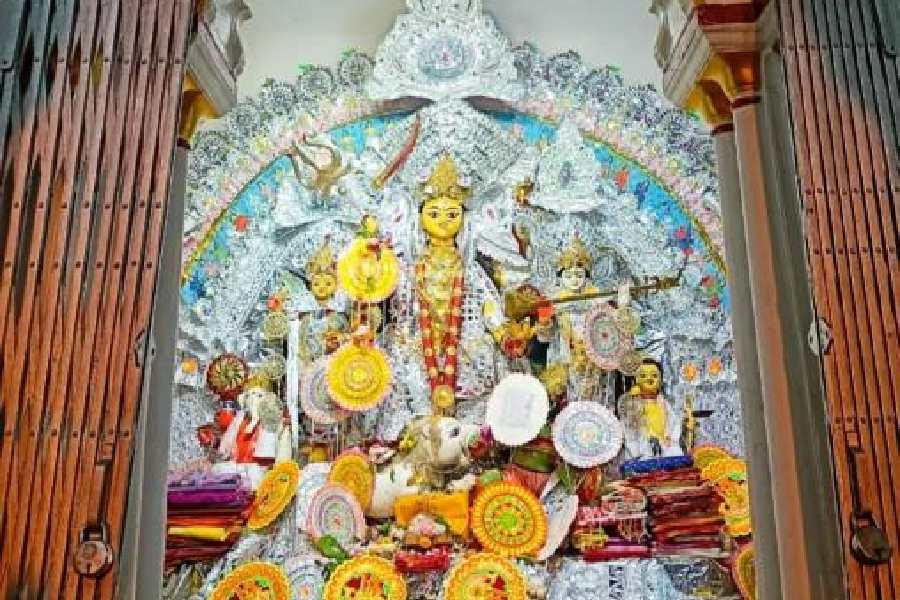Durga Puja comes as an occasion for the Nandi family at Pandua in Hooghly district to express respect and gratitude to a pir (a spiritual guide in Islam) as they believe blessings showered by him had once changed their lives for generations.
As a mark of respect to the original pir, the family after completion of puja on Mahanavami first offers the bhog prasad (a meal of blessed food in Hinduism) to a pir and distributes it among others only after he finishes eating.
On Vijaya Dashami, the family offers a prayer at a local dargah (a shrine or tomb built over the grave of a revered figure in Islam), maintaining a tradition that their forefathers began 225 years ago — around 1798 when Shah Alam 2 was the Mughal Emperor of India and Babar Ali Khan was the Nawab of Bengal under the East India Company’s rule commanded by Lord Richard Wellesley.
According to the Nandi family legend, an unknown pir had once given two mohurs (gold coins) to two siblings — forefathers of the family — advising them to launch their business at a time when they were struggling for survival amid penury. The brothers, Kuber Nandi and Sankar Nandi, invested the coins in the business of betel nuts and edible oil and rushed to Calcutta to change their lives.
The special occasion of Mahanavami, which turns into a family get-together, is a major crowd-puller for the local residents who gather to experience the event as an instance of communal amity and inclusivity.
“Nobody knows the identity of the pir who had helped our forefathers…. But since our ancestors had once begun these practices as a gesture of gratitude, we have been following the tradition,” said Abhijit Nandi, 54, who works as an editor at a publishing house in Calcutta.
The Nandi family which established an estate at Jamgram in Pandua began the puja a few decades after the mohur episode.
“The family records show Durga Puja and the tradition of inviting a pir began around 225 years ago. It appears that the later generations heard about the pir’s blessings and decided to continue expressing gratitude before the goddess,” said Nandi.
“We feel great that our forefathers had such exemplary inclusivity,” he added. “This is what makes the event popular. Many Muslim people visit our puja and participate in the celebrations.”
On Monday, after Mahanavami’s puja was concluded, the bhog prasad was first offered to a pir, who was invited from a neighbouring village. The family humbly approached him to have the bhog prasad for lunch. Everybody else started eating only after the pir finished eating.
Partha Chattopadhyay, a teacher of Bengali literature at Balagarh Bijoy Krishna College and a researcher of Hooghly history, said: “Such instances prove that the Almighty has no religion.’
“It is good that many people in our society still feel this way and practise it in real life. Religion is just a concept, which many people interpret in wrong ways to create differences,” he added.











